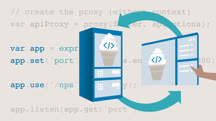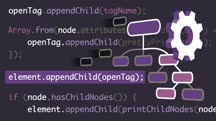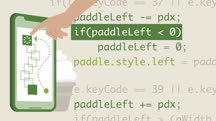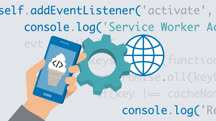Course catalog
Categories
Showing 8,521-8,540 of 9,135 items.
UX Research: Lean Experimentation
Validate your ideas faster using the lean startup methodology. Learn the fundamentals of conducting lean experiments to guide design and product decisions.
UX Research: Mobile Diary Studies (210491)
Studying your customers’ experience—especially as they interact with your product or brand in the context of their lives—leads to discoveries that help you make strong business, product, and UX decisions. In this course, learn how to capture snapshots of the moments that matter by conducting mobile diary studies through text, screen recording, or selfie videos. Sarah Weise explains this qualitative research technique to gather real-life data from customers in a way that will meet your UX or market research goals. Using data gathered in mobile diary studies, you can make value-based decisions by mapping a customer’s journey, identifying buyer touch points, understanding how to segment your audience, conducting exploratory research, and more. By the end of this course, you’ll be ready to perform mobile diary studies that result in actionable and meaningful insights.
UXPin for UX Design
Learn about how to use UXPin, the design and prototyping tool, to design documentation and create accurate wireframes and prototypes for your user experience (UX) projects.
UXPin: Design Sprints and Reviews
Learn how to use UXPin to manage design sprints and stakeholder design reviews.
UXPin: Developer Workflow
Discover how to use UXPin for a developer workflow. Learn how to design and iterate through ideas for apps and interactions.
V-Ray 3.0 for 3ds Max Essential Training
Master features of the V-Ray 3.0 rendering engine and learn how to extend the range of 3ds Max with advanced V-Ray tools, such as progressive sampling and hair and skin shaders.
V-Ray 5 for 3ds Max Essential Training
Learn the essentials of V-Ray 5, the fifth version of the popular third-party render engine inside 3ds Max
V-Ray Next for 3ds Max Essential Training
Get up and running with the V-Ray Next rendering engine inside 3ds Max. Learn how to leverage the many tools and features found in this powerful rendering solution.
V-Ray Next: Unreal Engine Rendering
Explore the rendering workflow in V-Ray Next for Unreal, the game-changing render engine offering offline and real-time photographic rendering.
V-Ray: Control Color Bleed in Blender
Learn how to limit, contain, or prevent color bleed when working with global illumination renders.
Value Realization Best Practices for Customer Success Management
Learn how to determine a customer’s required outcomes and measure activities and outputs to prove the value of your solution in helping to attain those outcomes.
Value-Based Pricing
Explore the benefits of value-based pricing, a strategy in which you set prices based on the perceived value to customers instead of on cost.
Values and Ethics: Case Studies in Action
Deepen your understanding of values and ethics by evaluating scenarios where competing demands throw corporate values into conflict.
Vanilla JavaScript: Ajax and Fetch
Ajax is the backbone of high-performance web apps. Learn how to use vanilla JavaScript, Ajax, and APIs like Fetch and XHR to request and handle data and modify webpage content.
Vanilla JavaScript: Animations
Animate content with JavaScript and native web technologies. Explore how to configure and animate DOM elements, animate within the HTML5 canvas, and use the Web Animations API.
Vanilla JavaScript: Binding and Propagation
Learn about some more advanced JavaScript concepts—including managing propagation and binding—as you build a few interesting card games.
Vanilla JavaScript: Building on the Document Object Model (DOM) (229004)
At the heart of every web application and framework (such as Angular or React) lies the DOM, the Document Object Model. In this course, instructor W. Scott Means explores the DOM from the bottom up. After a fast-paced introduction to the Node interface and DOM trees, Scott takes things to the next level by constructing a functioning HTML parser. He shows you how HTML source code is translated into a complete DOM tree, including comments, text nodes, and elements with attribute nodes. Then, Scott demonstrates how the resulting DOM tree can be traversed and transformed using DOM-specific maps and lists, tree references, and document fragments to produce pretty-printed HTML output. He concludes the course with advice on how you can practice what you’ve learned and get one step closer to mastering the DOM.
Vanilla JavaScript: Client-Side Data Storage
Learn about client-side storage solutions for JavaScript developers. Explore local storage, session storage, how to work with the IndexedDB API, and how to store large files.
Vanilla JavaScript: Mobile Game Programming
Practice JavaScript programming—the fun way. Learn how to write more fast, efficient code by creating a mobile-friendly game using vanilla JavaScript.
Vanilla JavaScript: Progressive Web Applications
Create app-like experiences for the mobile web. Learn how to create progressive web apps with nothing more than Vanilla JavaScript.



















